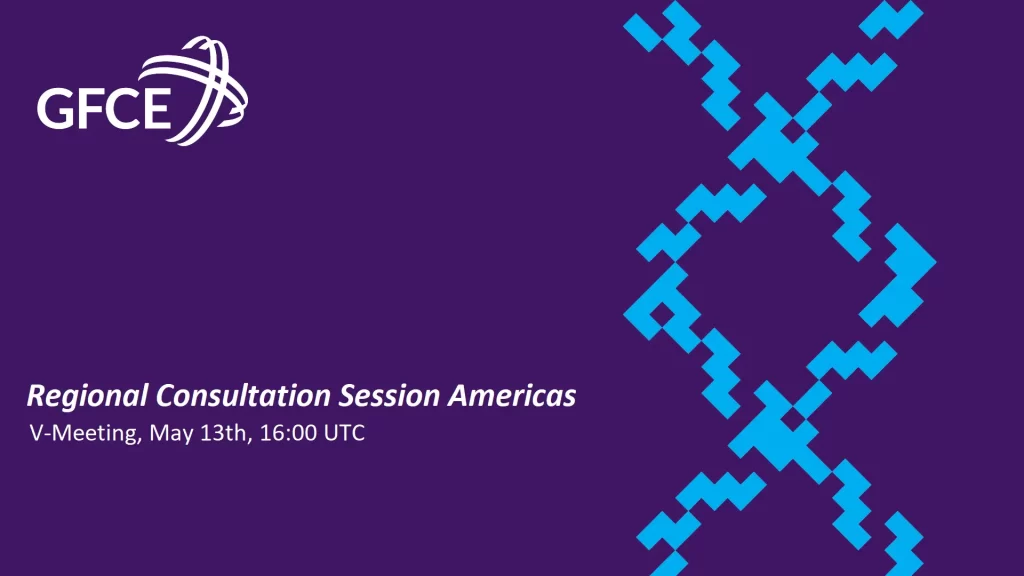Report on the “GFCE Regional Consultation Session Americas”
Report | GFCE V-Meeting “Regional Consultation Session Americas” | 13 May 2020
On Wednesday, May 13th, the GFCE held its first Regional Consultation session regarding the Americas, as part of the V-Meetings. Representatives of GFCE members and partners from the Americas region were given the opportunity to discuss cyber capacity needs and to provide their ideas and input for the next steps of the GFCE Way Forward 2022.
The aim of the session was to bring together regional stakeholders, in order to listen and discuss what members and partners expect to get from and give to the GFCE regarding global needs in cyber capacity building in the next coming years. The participants provided theirs views on how their country/or organization has benefited from the GFCE membership, by mentioning the importance of the platform in bringing together regional and global players from different backgrounds, in order to help them collaborate and share their knowledge, expertise and practices on CCB efforts. As pointed out during the session, in this way the GFCE stands, as the main landing place for sharing common experiences and developing capacity needs for the future.
In addition, the participants also raised the importance of benefiting from an open and neutral platform, by having the opportunity to connect with other regional and global stakeholders and find common problems and solutions to move forward. From collaborating on a regional or international level, stakeholders are able to find what key area and focus are missing in cyber capacity building and come up with new ideas and initiatives to breach the gap of knowledge in the field. As the GFCE works as a global coordinating platform for cyber capacity building, the participants highlighted that the GFCE’s multi-stakeholder nature allows all different organizations and countries involved, to open up to one another and unite actors from different working backgrounds in order to promote efforts in the cyber capacity building ecosystem.
During the second half of the session, the participants also shared their thoughts and ideas on what the GFCE can do to improve its way forward. The main feedback was that the GFCE should remain a neutral platform, focusing on coordinating more regional efforts especially in the Americas, where countries capabilities on cyber security and capacity building differ a lot. Therefore, the GFCE can coordinate bilateral and multilateral connection between regional actors, in order to benefit from others work and avoid the duplication of efforts on cyber capacity building. Another issue raised, was the need for growing the GFCE membership in Latin America, by showing the practical value to potential members and partners, who can benefit by getting familiar with regional and global cyber initiatives and tools. Regarding the coordination aspect of the GFCE, the participants pointed out the importance of more interaction between governmental and non-governmental actors (such as civil society and academia) in order to bring together the different perspectives and interests on cyber capacity building.
The session ended with Mr. Chris Painter, president of the GFCE Foundation Board, who welcomed all the different suggestions provided by the participants of the session, and highlighted that the GFCE is a neutral player, aiming to bring together various stakeholders involved in cyber capacity building efforts, in order to address their needs, coordinate their efforts and develop regional and international collaboration in developing cyber capacity building mechanisms.
